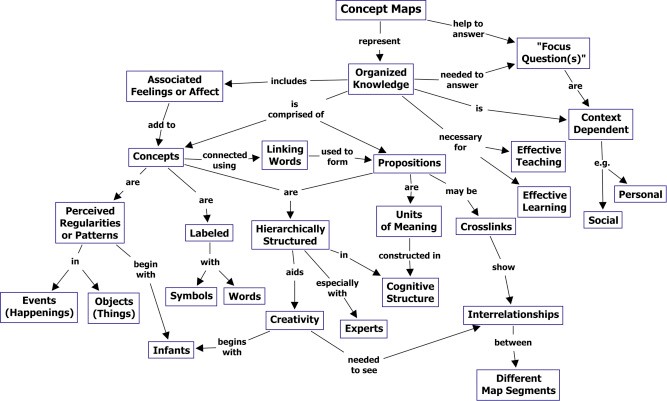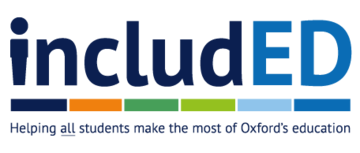Making the most of collections and revision classes
Preparing students for exams using collections and revision
Collections and revision classes are valuable for preparing students for summative assessments such as examinations. Here are some teaching ideas.
What are collections?
Collections are formative examinations or assessments for undergraduates and usually take place in 0th week of term in colleges. Collections can be set to assess learning from the previous term’s work, or as a diagnostic assessment to gauge understanding of vacation work done to prepare for the new term. The tasks are either set by college tutors or by departments, and the timing can vary depending on the structure of the course.
Collections are a helpful opportunity for undergraduate students to review learning and connect tutorial work with how they will eventually be assessed. Tutors and colleges also use collections to monitor student progress.
Preparing students for collections
Students usually consolidate their work and prepare for collections over vacations. It is useful to set aside some time before the end of term to discuss the format and aims of the collection, and how students might prepare. This could include:
- Explaining how collections relate to how the paper will be ultimately assessed, for example, Prelims, Moderations or Final Honour School assessment.
- Checking that students know where to find past papers (on OXAM), marking criteria (usually in the course handbook), and other information about their assessments.
- Helping students make connections between papers and think about exams strategically, ask students to briefly reflect on what went well in previous collections and what they might do differently this time.
Feedback on collections and formative assessments
When you return feedback on collections and other assessments, it can be beneficial to use class time to help students to make the most of your comments, reflect on their work, and what they can do next to improve. Here are some ideas.
Feedback sessions
- Ask students to bring to the feedback session questions they would like to be answered. To encourage sharing, students could write questions anonymously on post-it notes, which are then collected together on the board and discussed. You will likely see some common patterns, and students may already have some helpful answers to offer peers.
- When you return exam papers, ask students to review their work and complete an exam wrapper (see further down for example questions). These short handouts are intended to prompt students to see beyond marks and analyse how they did, making plans for next time. You can use students’ exam wrappers when you discuss feedback with them, and they can be reviewed prior to the next collections or before exams.
- Share a good example of a paragraph, short answer or solution – either one you have written yourself or anonymised from student work (with their permission). Ask students to consider why it is successful, and how it could be further improved.
- For mathematical, problem-based and/or short answer papers, consider the two-stage exam method. After completing and submitting the collections or formative assessment, students work in small groups to redo the exam collaboratively before they receive feedback. It is helpful for students to see how others tackle questions and will prepare them to make the most of your feedback. Marks are given on the individuals’ first attempts, although you could also give credit for improvement in the group work. See the Carl Wieman Science Education Initiative for further ideas.
- For essay papers, you may find that students struggle with a particular part, for example the introduction or opening. Have students work together in pairs or small groups to swap and read their introductions. They could then collaborate to rewrite one, and share their rewritten sections for discussion with the rest of the class.
Revision classes
- Identify and address questions and concerns. Ask students to email their questions or priorities, and use these to plan your session, e.g. by sourcing relevant past questions from OXAM. You can also elicit questions more anonymously at the beginning of a session, by asking students to write questions or concerns on post-its, and stick them on the whiteboard. Or, students could submit questions via their smartphone or laptop, using a tool such as Poll Everywhere or Mentimeter. With either method, you can then address questions as a group there and then, or by email, or use them to plan a follow-up session.
- Understanding practicalities. Oxford exams are formal occasions, and students often find regulations and rubrics (instructions) complicated and daunting. It’s worth spending 5-10 minutes checking the group’s handle on the practicalities of the exam, including the instructions. Ask students to talk you though what happens on the day, up to the point they start writing their first answer. If a rehearsal would be useful, direct students to the mock exams and exam orientation sessions organised by Examination Schools.
Understanding the criteria and what makes excellent work
In order to prepare for exams effectively, students need to know what they’re aiming for, and how their work will be assessed.
- Question analysis. In pairs, students analyse an examination question, using a series of prompts (eg What is the question asking you to do? Explain the question in your own words, using everyday language. What skills are the examiners expecting you to use? How might you structure an answer to this question? If you were to write an answer to this question in exam conditions next week, what preparation could you do?). This leads on to a whole class discussion about what is expected and possible ways of approaching the question. Students can also self-evaluate how well they could do the question.
- How does your plan compare to the criteria? Students plan an answer to a question and bring this to the class. In class, ask students to recall what the criteria are in their own words, and write these up on the whiteboard, then compare them to the examination criteria. Students then individually compare their plan to the criteria, before leading on to a whole class discussion about which criteria they found. This will raise points like: what the criteria look like in practice; how to meet the more difficult criteria; what is feasible in a timed exam compared to tutorial work.
See the resource Supporting student understanding of assessment criteria for lesson plans and more activities.

A concept map of concept mapping (Novak and Cañas, 2008)
Activities to help students see the big picture
Here are some ideas for connecting different topics and building an overview.
- Ask students to make a timeline of a period or field. This will assist them to develop an overview and see how different events, topics and figures relate.
- Mapping or flow-charting key processes can help students understand where gaps may lie.
- A class mind map or brainstorm of key debates across the paper can show how these interrelate and inform how students define and prepare topics.
- Concept maps (see above) are more structured than mind maps and useful both for reducing information and checking understanding of relationships. Concept maps begin from a focal question, which is written out, with concepts then arranged as they relate. Linking words or phrases used to convey the relationship between concepts and clarify propositions. Further information about concept mapping is available from Cornell University.
- Revision strategies. Students may need to upgrade their techniques. Have students pool ideas for what works well; this is a good opportunity to gently encourage them to move beyond simply memorising, or re-reading, for example. As a rule, revision techniques which involve actively using, retrieving and making sense of information are much more effective than more passive activities such as highlighting. Practice is very effective, particularly when reflections on the last piece are used to improve the next. Students can hone in on specific skills, such as question analysis and introductions.
Exam wrappers: example questions
Exam wrappers (see further above) are based around three types of question: preparation, performance and changes for next time. Using a total of around 3-7 questions should provoke reflection but also be manageable for students. Below are some examples of each type of question.
Reflecting on preparation. Students review their revision strategies and how they prepared for the exam.
- Which revision strategies did you use to prepare for this exam? Circle as appropriate, and add your own:
- Re-reading work and notes, making fresh revision notes, memorising key facts/formulate/dates/quotations, analysing exam papers, reading around topics, planning practice answers, writing practice answers, reviewing previous work and collections
- What was your main focus or goal in your revision?
Analysing performance. Students revisit their paper, looking for strengths, patterns of error, and opportunities for further development. The aim is for students to connect their revision with their performance, and realise which strategies worked well – and which didn’t. For example, students may realise that simply re-reading or highlighting notes did not give them a solid knowledge base.
- What went well about this exam?
- What could be improved?
- Can you spot any patterns of error or missed opportunities?
- Which revision strategies are working well? How can you tell?
- And which revision strategies weren’t as successful? How can you tell?
Changes for next time. After analysing their preparation and performance, students should be ready to set some informed goals or intentions for future collections or exams.
- What will you do differently next time in your revision? Choose up to three specific and realistic actions.
- Thinking about the exam itself, what will you do differently with your time?
Oxford Teaching Ideas © 2024 by Centre for Teaching and Learning, University of Oxford are licensed under Creative Commons Licence Attribution-NonCommercial-ShareAlike 4.0 International .
We encourage you to adapt and build upon the material in any medium or format to suit your individual teaching purposes (for non-commercial purposes only). If distributing your adapted material, we ask that you credit the Centre for Teaching and Learning.
Contact us
For general enquiries, please contact us at
Stay informed
Follow us



